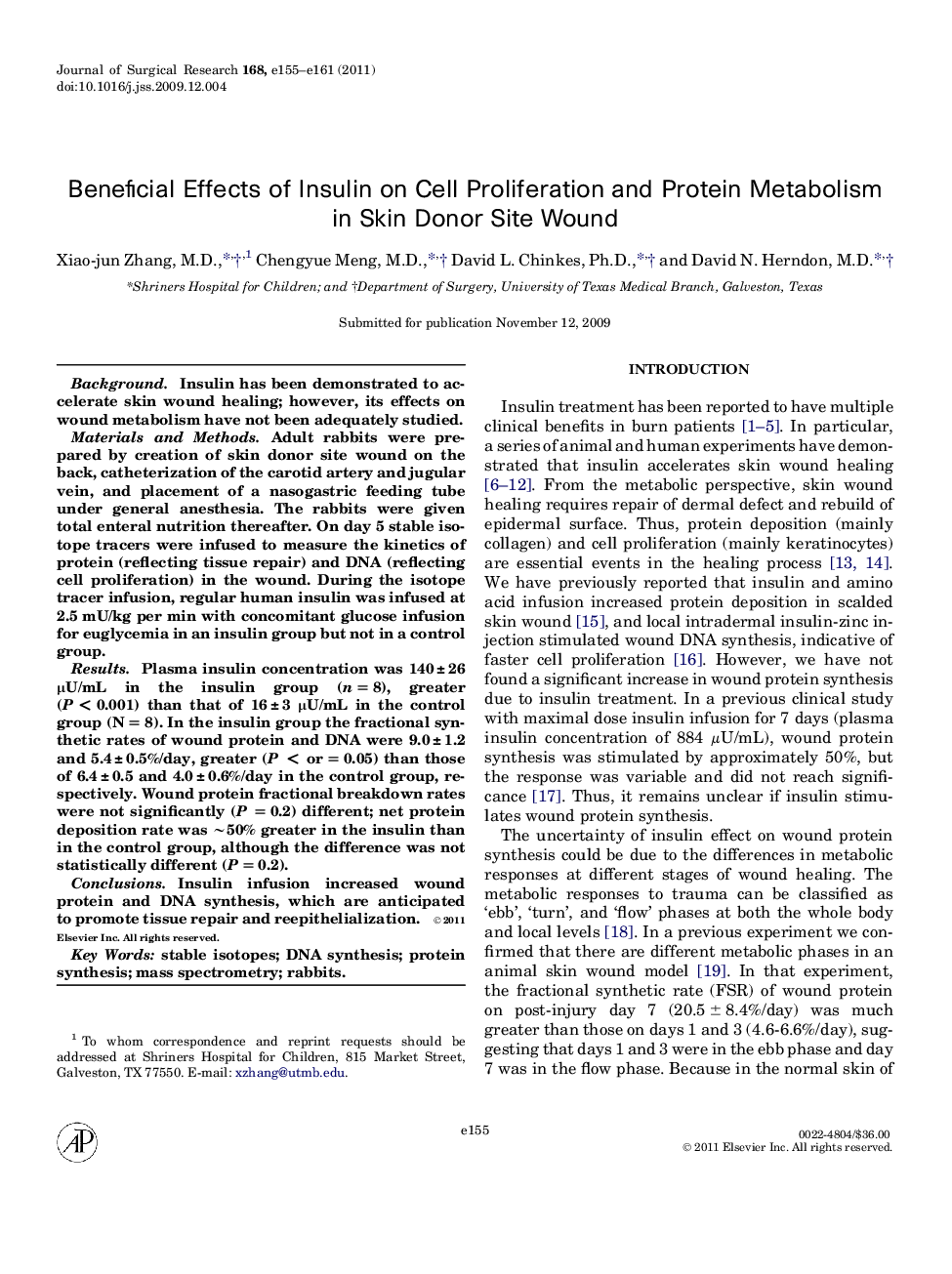| Article ID | Journal | Published Year | Pages | File Type |
|---|---|---|---|---|
| 4302215 | Journal of Surgical Research | 2011 | 7 Pages |
BackgroundInsulin has been demonstrated to accelerate skin wound healing; however, its effects on wound metabolism have not been adequately studied.Materials and MethodsAdult rabbits were prepared by creation of skin donor site wound on the back, catheterization of the carotid artery and jugular vein, and placement of a nasogastric feeding tube under general anesthesia. The rabbits were given total enteral nutrition thereafter. On day 5 stable isotope tracers were infused to measure the kinetics of protein (reflecting tissue repair) and DNA (reflecting cell proliferation) in the wound. During the isotope tracer infusion, regular human insulin was infused at 2.5 mU/kg per min with concomitant glucose infusion for euglycemia in an insulin group but not in a control group.ResultsPlasma insulin concentration was 140 ± 26 μU/mL in the insulin group (n = 8), greater (P < 0.001) than that of 16 ± 3 μU/mL in the control group (N = 8). In the insulin group the fractional synthetic rates of wound protein and DNA were 9.0 ± 1.2 and 5.4 ± 0.5%/day, greater (P < or = 0.05) than those of 6.4 ± 0.5 and 4.0 ± 0.6%/day in the control group, respectively. Wound protein fractional breakdown rates were not significantly (P = 0.2) different; net protein deposition rate was ∼50% greater in the insulin than in the control group, although the difference was not statistically different (P = 0.2).ConclusionsInsulin infusion increased wound protein and DNA synthesis, which are anticipated to promote tissue repair and reepithelialization.
